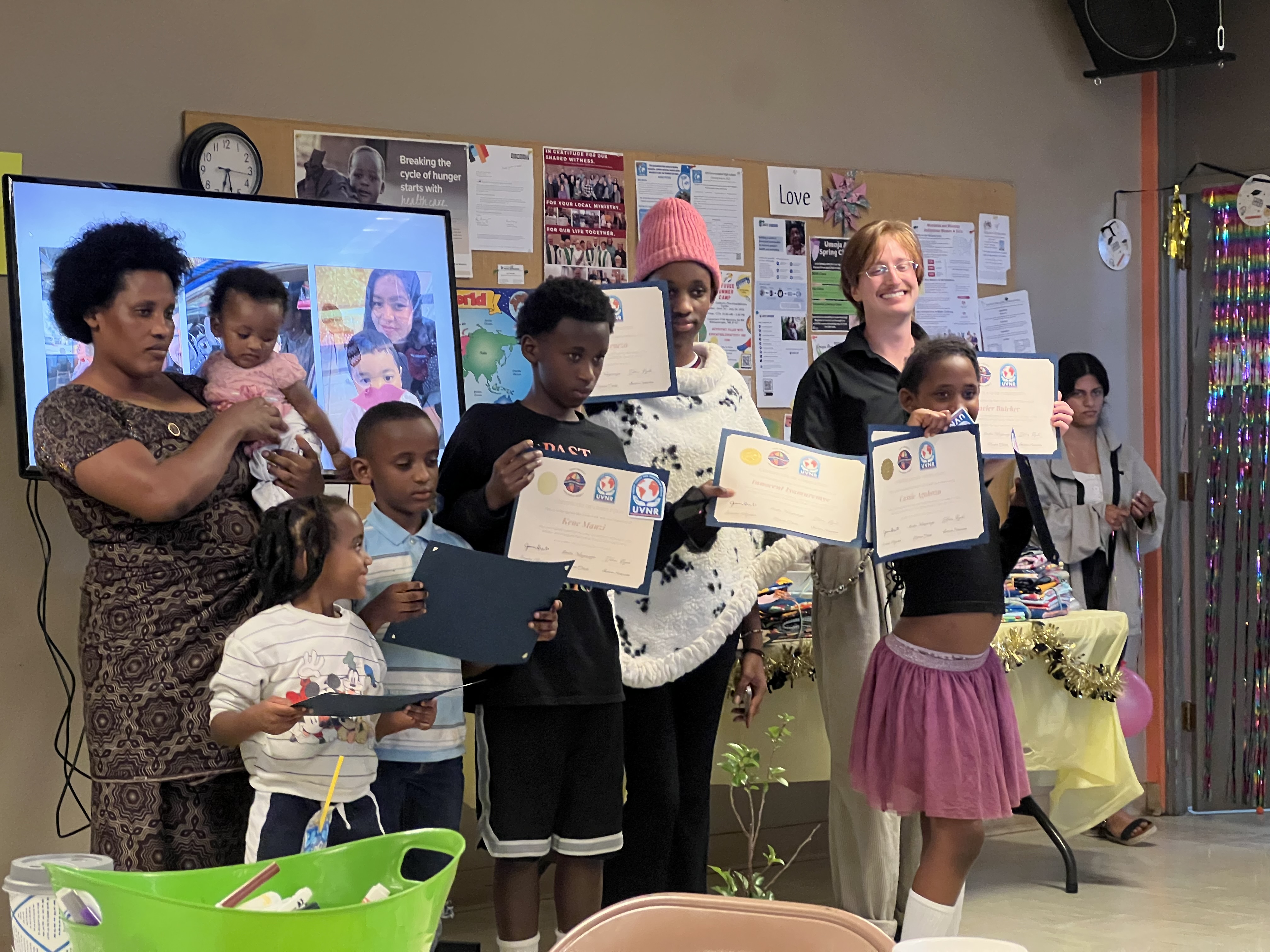
The Refugee and Immigrant Well-being Project (RIWP)
The Refugee and Immigrant Well-being Project (RIWP) is a 9-month-long annual program that pairs students from the University of New Mexico (UNM) with newcomer families. Together, they work to mobilize community resources, foster mutual learning, and engage in advocacy efforts. For more information about the RIWP course, visit rwp.unm.edu.
The RIWP Course
The RIWP class, Health and Social Inequalities I and II, is a two-semester, 9-credit-hour course offered at UNM. During the first three months of the fall semester, students participate in classroom-based learning, where they explore topics such as social inequalities, migration, and the resettlement challenges faced by newcomers. They also gain practical knowledge on accessing community resources and understanding the systemic barriers newcomers encounter.
The Learning Circles
Starting every November, students and newcomer families gather weekly for three-hour sessions held in a community space. These gatherings include:
Refugee and Immigrant Advocacy
Outside the weekly Learning Circles, students spend 3-5 hours per week supporting newcomer families through various activities, such as:
Students work under close supervision and receive guidance from experienced instructors, ensuring that both students and participants benefit from a well-supported learning environment.
RIWP not only bridges cultural and generational divides but also equips both students and newcomer families with the tools to promote long-term community integration and advocacy.